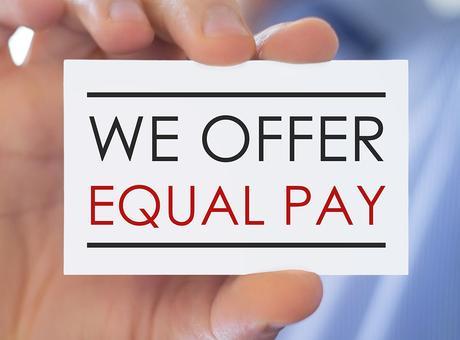
#20PercentCounts
Three months and four days. This is how much longer, on average, women in the United States had to work to make what their male counterparts did over the last year; Women in the United States had to work all of 2016 plus up until April 4th, 2017 to catch up to what men earned in 2016. At the current rate of progress, it will take more than 40 years for women to be paid fairly.
The disparity may seem gloomy, but organizations like Lean In – the nonprofit founded by Sheryl Sandberg to empower women in the workplace – are working to change that. “Equal pay is essential to the goal of gender equality,” said Sheryl Sandberg, COO of Facebook and founder of LeanIn.Org, in a press release. “This issue speaks to how we value women’s labor, knowledge, time, training, and so much more. In short, it’s about women’s worth. There’s nothing more fundamental than that.”
And they’re putting this mission to action: On April 4th, 2017 (Equal Pay Day) Lean In launched #20PercentCounts – a social movement to highlight the unfairness of the gender pay gap. Over 350 businesses in 27 cities across the country participated in #20PercentCounts by offering various versions of a 20% discount.
I led a portion of the campaign in Portland, where businesses ranging from trendy Portland-area clothing chain Sloan Boutique, to woman-owned brewery Brewvana, to hip NE Portland café Good Coffee, offered 20% off their products all day April 4th. “For us, the call is simple,” Sam Purvis, one of the co-founders of Good Coffee, told the FBomb. “We believe all human beings have equal value and should be treated accordingly.”
The #20PercentCounts movement first started in Washington, D.C. just three years ago. Sruti Ramadugu, the founder of Washington D.C.’s Lean In chapter, began partnering with local businesses to offer the 20% discount. A national movement grew from her small circle on the east coast. This year, #20PercentCounts received support from influencers like politicians Hillary Clinton and Michael Bloomberg, actress Jennifer Lawrence, and the entire U.S. women’s soccer team, who all posted about the movement. National brands Lyft, P&G, and Luna Bar offered the 20% discount and outlets including USA Today, People, Forbes, Marie Claire, and the Huffington Post covered Lean In’s efforts.
Campaigns like these are especially important given how systemic this issue is; the wage gap persists, year after year, even though feminists began tackling this issue decades ago. The Equal Pay Act, passed in 1963 by John F. Kennedy, was intended to abolish sex-based wage discrimination between men and women who performed jobs that required equal skill, effort, and responsibility under the same working conditions in the same establishment. Yet today, women are still only paid 20% less than men on average. The gap is even worse for women of color: black women are paid 37% less and Hispanic women are paid 46% less.
Ultimately, closing the pay gap won’t only benefit women, but also the entire U.S. economy. New research from the Institute for Women’s Policy Research shows that closing the pay gap would lift 3.1 million working women and their families out of poverty and add $513 billion in new income each year to the U.S. economy. What’s more, the majority of Americans support the issue: according to a national poll, more than 9 in 10 Americans support equal pay for equal work.
For me, #20PercentCounts demonstrated the immense power of a social media-driven, locally-led movement for gender equality. The goal of #20PercentCounts wasn’t to pass legislation or change any specific lawmaker’s mind, but simply to raise awareness and help women in a practical, if short term, way. #20PercentCounts reminds us that each and every one of us must play our part if we are to close the wage gap and that many inspiring Americans are willing to do so. In the words of Rachel Thomas, co-founder and president of LeanIn.Org, “Women accomplish amazing things when we work together.”

